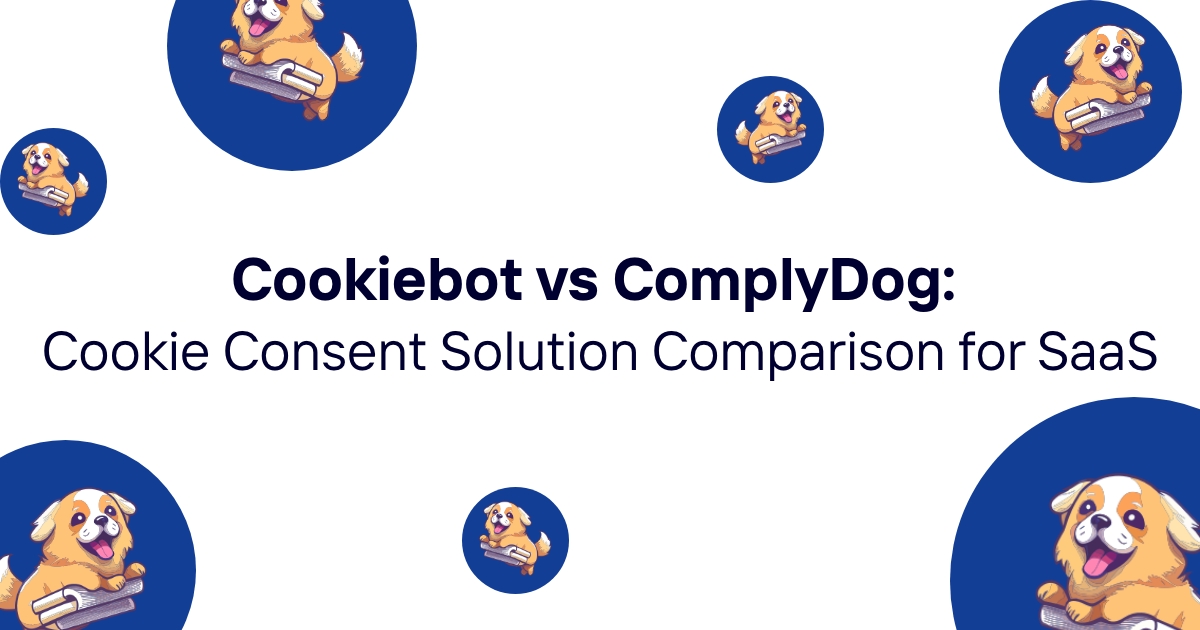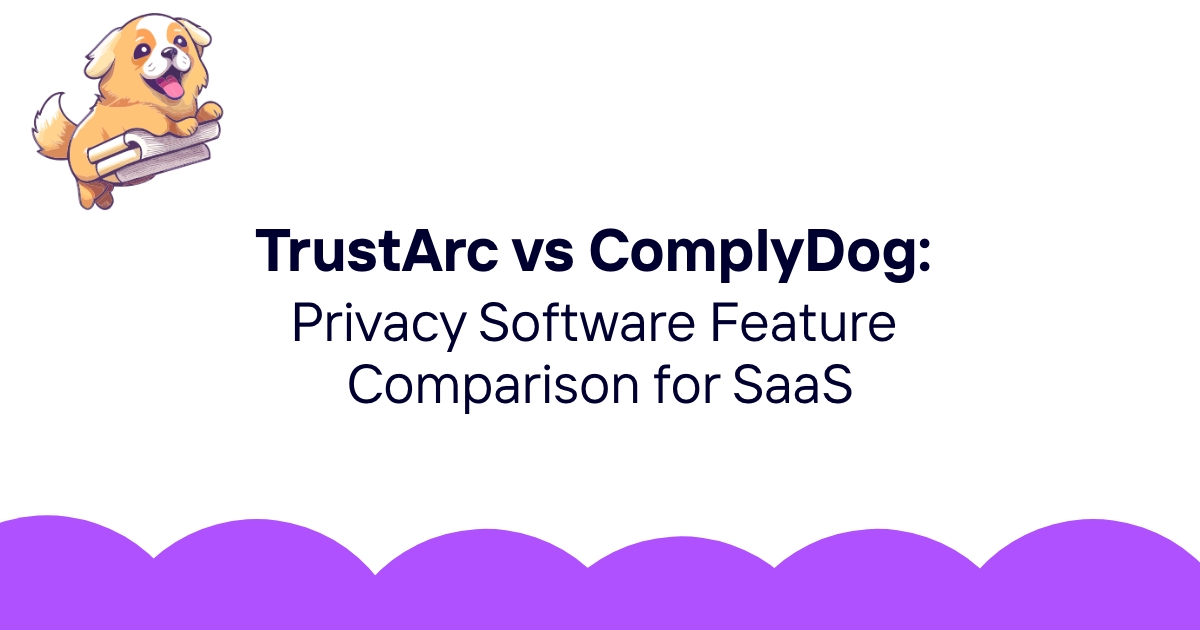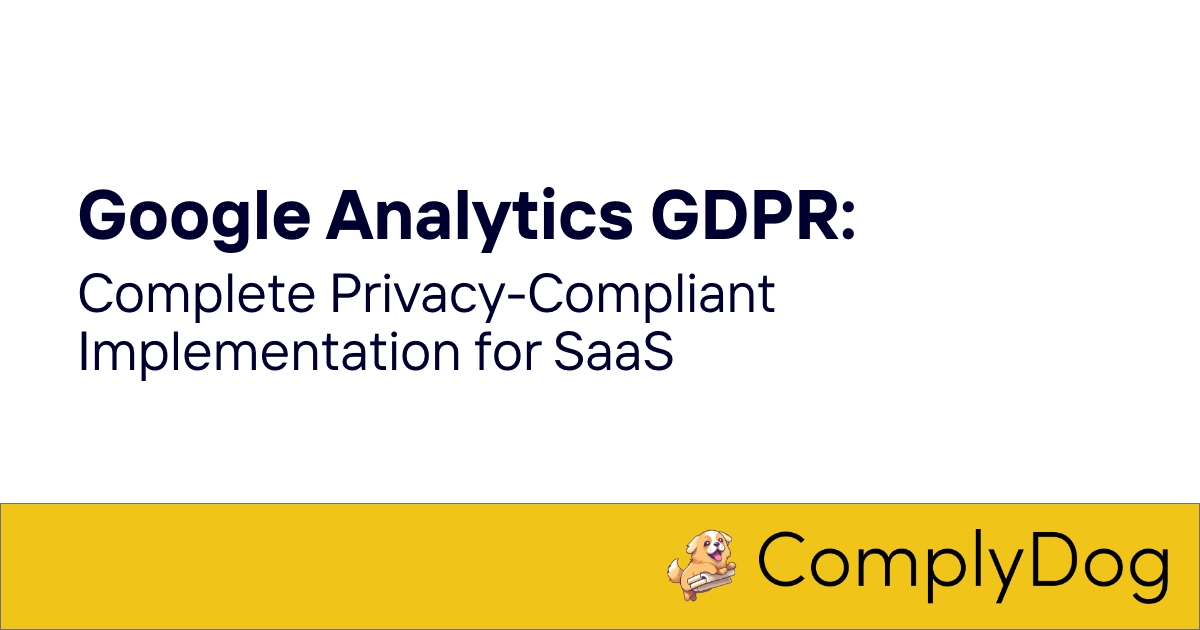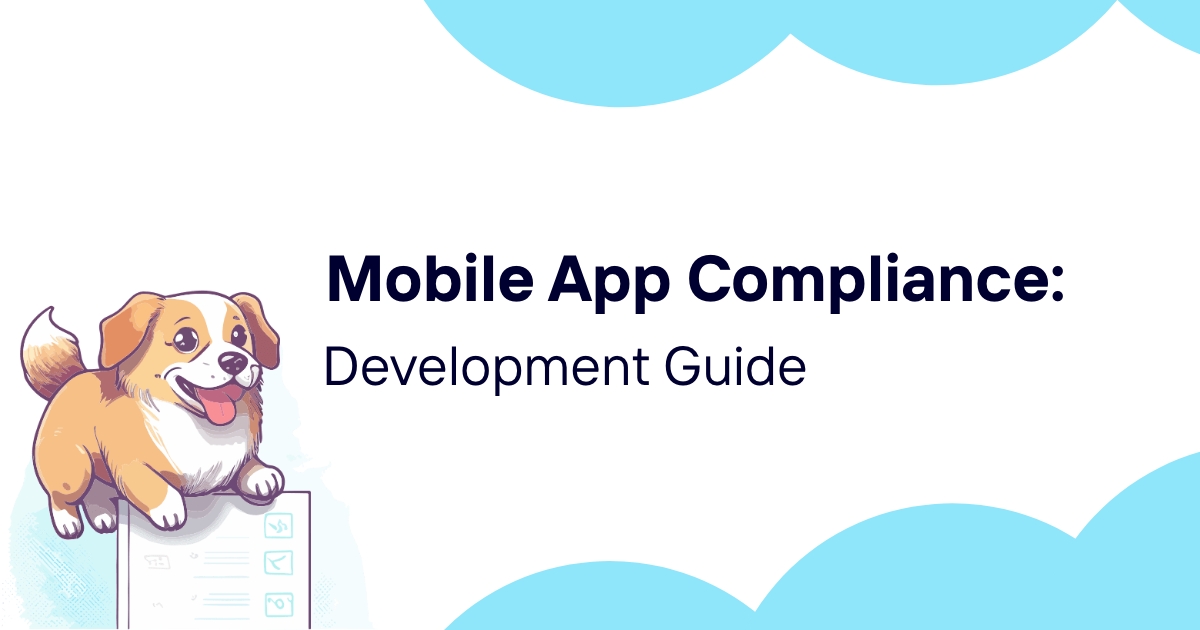Selecting appropriate cookie consent solutions requires evaluating specialized consent management capabilities while considering SaaS-specific requirements, technical integration complexity, and regulatory compliance throughout cookie consent platform assessment and vendor selection activities. Modern SaaS platforms need consent solutions that address technical architecture challenges while providing seamless user experience and comprehensive compliance coverage.
The complexity of cookie consent solution comparison lies in assessing consent management depth, technical implementation flexibility, user experience design, and regulatory coverage while considering vendor specialization and platform integration capabilities throughout consent solution evaluation and selection activities.
SaaS companies must evaluate cookie consent platforms based on consent functionality, technical integration requirements, user experience impact, and compliance comprehensiveness while ensuring selected solutions provide sustainable consent management throughout customer interaction and regulatory adherence activities.
Effective cookie consent evaluation enables SaaS companies to optimize user experience while maintaining comprehensive compliance through systematic platform assessment that considers both technical implementation and regulatory requirements throughout consent solution selection and deployment planning.
Proper cookie consent comparison requires methodical evaluation of consent capabilities, technical features, compliance coverage, and vendor characteristics that ensures consent solution selection enhances customer experience throughout privacy management and regulatory compliance activities.
ComplyDog provides comprehensive privacy management including cookie consent capabilities designed specifically for SaaS companies, integrating consent management with broader privacy compliance requirements throughout unified privacy platform management.
Platform Focus and Specialization Areas
Understanding platform specialization enables SaaS companies to evaluate solution alignment while assessing vendor focus areas throughout cookie consent solution evaluation and specialization assessment activities.
Cookiebot Consent Management Focus:
Cookiebot generally specializes in cookie consent management and website compliance, providing dedicated consent banner solutions and cookie tracking capabilities while focusing on website privacy compliance throughout cookie consent and website privacy activities.
The platform typically emphasizes cookie scanning, consent banner optimization, and regulatory compliance for website operations while addressing cookie-specific privacy requirements and consent management needs.
ComplyDog Integrated Privacy Approach:
ComplyDog integrates cookie consent management within comprehensive privacy platform functionality, addressing consent as part of broader SaaS privacy compliance including data processing, customer rights, and privacy governance throughout integrated privacy management activities.
ComplyDog's approach combines cookie consent with data mapping, privacy assessments, and compliance tracking while providing unified privacy management tailored to SaaS business models and technical architectures.
Solution Scope and Coverage:
Cookie consent platforms may focus specifically on consent management or provide consent as part of comprehensive privacy solutions while addressing different organizational privacy management approaches throughout platform scope evaluation and solution assessment activities.
Solution scope considerations include consent-only functionality versus integrated privacy management while addressing organizational preferences for specialized versus comprehensive privacy platform approaches.
Target Market and Customer Profile:
Different platforms serve various customer segments including website operators, enterprise organizations, or SaaS companies while addressing specific industry requirements throughout market alignment and customer profile assessment activities.
Market focus evaluation helps assess platform suitability while ensuring vendor specialization matches organizational characteristics and privacy compliance requirements.
Technology Integration Philosophy:
Platform vendors adopt different approaches to technology integration including standalone solutions, comprehensive platforms, or specialized tools while addressing various organizational technology preferences throughout integration philosophy assessment activities.
For insights on comprehensive privacy management approaches, check out our TrustArc vs ComplyDog comparison which addresses similar platform evaluation considerations.
Cookie Consent Management Capabilities
Comparing cookie consent features enables SaaS companies to evaluate consent functionality while assessing capability comprehensiveness throughout cookie consent feature evaluation and functionality assessment activities.
Consent Banner Design and Customization:
Consent banner capabilities typically include design customization, messaging configuration, branding integration, and user interface optimization while addressing consent presentation requirements throughout consent banner management and user interface activities.
Banner customization may vary in design flexibility, branding options, and user experience optimization while addressing different organizational presentation preferences and user interface requirements.
Cookie Scanning and Detection:
Cookie scanning includes automated cookie discovery, categorization, documentation, and ongoing monitoring while addressing comprehensive cookie inventory requirements throughout cookie management and discovery activities.
Scanning capabilities may differ in automation levels, detection accuracy, and ongoing monitoring while addressing various organizational cookie management approaches and technical requirements.
Consent Collection and Documentation:
Consent collection encompasses consent capture, preference management, consent documentation, and compliance tracking while addressing regulatory consent requirements throughout consent processing and documentation activities.
Consent documentation may vary in detail levels, storage approaches, and compliance tracking while addressing different regulatory requirements and organizational consent management preferences.
Preference Center Management:
Preference centers include consent management interfaces, cookie category controls, consent withdrawal options, and preference updates while addressing customer choice management throughout preference management and customer control activities.
Preference center functionality may emphasize granular control, user experience, or compliance features while addressing different customer empowerment approaches and regulatory requirements.
Cross-Domain and Multi-Site Management:
Multi-site consent management includes domain coordination, consent synchronization, and centralized management while addressing complex organizational website structures throughout multi-domain consent and site management activities.
Technical Implementation and Integration
Evaluating technical implementation enables SaaS companies to assess integration complexity while planning cookie consent solution deployment throughout implementation planning and technical integration activities.
Implementation Methods and Flexibility:
Cookie consent solutions typically provide different implementation approaches including JavaScript tags, API integrations, or plugin installations while addressing various technical implementation preferences throughout consent solution deployment activities.
Implementation approaches may emphasize ease of deployment, technical flexibility, or comprehensive control while addressing different organizational technical capabilities and implementation preferences.
SaaS Platform Integration Capabilities:
Platform integration includes application connectivity, database integration, and system synchronization while addressing SaaS-specific technical architecture requirements throughout consent platform integration and system connectivity activities.
SaaS integration may vary in depth, flexibility, and technical sophistication while addressing different organizational integration requirements and technical architecture patterns.
Performance Impact and Optimization:
Consent solution performance includes page load impact, resource utilization, and optimization features while addressing website performance requirements throughout consent implementation and performance management activities.
Performance considerations may include loading speed, resource efficiency, and optimization techniques while addressing different organizational performance requirements and user experience expectations.
Mobile and Responsive Design Support:
Mobile consent management includes responsive design, mobile optimization, and app integration while addressing various device access requirements throughout mobile consent and responsive design activities.
Mobile capabilities may vary in functionality depth, performance optimization, and user experience quality while addressing different organizational mobility requirements and user access patterns.
API and Webhook Capabilities:
Technical integration includes REST APIs, webhook notifications, and system connectivity while addressing automated consent processing and integration requirements throughout API management and system integration activities.
Regulatory Compliance and Legal Coverage
Assessing regulatory coverage enables SaaS companies to evaluate compliance alignment while ensuring comprehensive legal support throughout cookie consent compliance evaluation and regulatory assessment activities.
GDPR Cookie Consent Compliance:
GDPR consent compliance typically includes explicit consent requirements, consent withdrawal mechanisms, granular choice provision, and compliance documentation while addressing European cookie consent requirements throughout GDPR compliance activities.
GDPR features may include automated compliance tracking, documentation generation, and regulatory reporting while addressing specific European consent requirements and regulatory expectations.
ePrivacy Directive and Cookie Law Support:
European cookie law compliance includes ePrivacy Directive requirements, national implementations, and cookie-specific regulations while addressing comprehensive European cookie compliance throughout ePrivacy and cookie law activities.
Cookie law support may vary in jurisdictional coverage, regulatory guidance, and compliance automation while addressing different European market requirements and regulatory expectations.
Global Privacy Regulation Coverage:
International consent compliance may include support for CCPA, PIPEDA, and other privacy regulations while addressing global consent requirements throughout international consent compliance and global regulation activities.
Global compliance support may vary in depth and coverage including jurisdiction-specific features, regulatory mapping, and compliance frameworks while addressing international SaaS operations.
Industry-Specific Consent Requirements:
Some platforms provide specialized consent features for specific industries including healthcare, financial services, or advertising while addressing vertical-specific requirements throughout industry consent compliance activities.
Industry features may include sector-specific frameworks, specialized consent requirements, or regulatory guidance while addressing unique industry consent obligations and compliance expectations.
Regulatory Update and Adaptation:
Platforms may differ in their approach to regulatory changes including update notifications, compliance adaptation, and feature enhancement while addressing evolving consent requirements throughout regulatory change management activities.
User Experience and Conversion Impact
Evaluating user experience enables SaaS companies to assess consent impact while optimizing customer interaction throughout cookie consent user experience evaluation and conversion optimization activities.
Consent Flow Design and Optimization:
Consent flow design includes user journey optimization, consent presentation, decision facilitation, and experience streamlining while addressing conversion impact minimization throughout consent flow and user experience activities.
Flow optimization may emphasize conversion preservation, compliance thoroughness, or user empowerment while addressing different organizational priorities for consent experience and business impact.
A/B Testing and Optimization Features:
Consent optimization includes testing capabilities, performance measurement, and experience refinement while addressing consent conversion optimization throughout consent testing and optimization activities.
Testing features may vary in sophistication, measurement capabilities, and optimization support while addressing different organizational approaches to consent experience improvement.
Multi-Language and Localization Support:
International consent management includes language support, cultural adaptation, and regional customization while addressing global user experience requirements throughout international consent and localization activities.
Localization capabilities may include interface translation, cultural customization, and regional compliance while addressing different international market requirements and user experience expectations.
Accessibility and Inclusive Design:
Consent accessibility includes screen reader compatibility, keyboard navigation, and inclusive design principles while addressing diverse user access requirements throughout accessible consent and inclusive design activities.
Accessibility features may emphasize compliance with accessibility standards, user experience quality, and inclusive design while addressing diverse user access needs and regulatory requirements.
Analytics and Performance Measurement:
Consent analytics include conversion tracking, user behavior analysis, and performance measurement while addressing consent impact assessment throughout consent analytics and performance monitoring activities.
Vendor Evaluation and Decision Factors
Establishing vendor evaluation criteria enables SaaS companies to make informed consent solution decisions while ensuring sustainable vendor relationships throughout cookie consent vendor assessment and selection activities.
Specialized vs Comprehensive Solution Trade-offs:
Vendor specialization includes consent-focused solutions versus comprehensive privacy platforms while addressing different organizational preferences for specialized tools versus integrated platforms throughout solution approach evaluation activities.
Specialization assessment may consider feature depth, integration complexity, and management efficiency while evaluating benefits of focused versus comprehensive privacy management approaches.
Pricing Models and Cost Structure:
Consent solution pricing typically includes subscription models, usage-based pricing, or feature tiers while addressing different organizational budget preferences and cost structures throughout pricing evaluation and budget planning activities.
Pricing considerations may include implementation costs, ongoing fees, and scaling factors while addressing different organizational financial requirements and growth planning.
Support Quality and Technical Assistance:
Vendor support includes implementation help, technical assistance, ongoing maintenance, and customer success programs while ensuring effective consent solution utilization throughout vendor relationship management activities.
Support assessment may include response quality, technical expertise, and resource availability while ensuring comprehensive consent solution support and organizational enablement.
Integration Ecosystem and Compatibility:
Vendor ecosystems include technology integrations, partner solutions, and platform compatibility while providing consent solution extension and integration capabilities throughout ecosystem evaluation activities.
Ecosystem assessment may consider integration breadth, compatibility depth, and ecosystem maturity while ensuring comprehensive consent functionality and sustainable technology relationships.
Innovation and Product Development:
Platform innovation includes feature development, technology advancement, regulatory adaptation, and customer-driven enhancement while addressing ongoing consent solution evolution throughout product development assessment activities.
Ready to select the cookie consent solution that optimally balances compliance requirements with user experience for your SaaS platform? Evaluate consent management capabilities against your specific technical requirements and regulatory needs while considering implementation complexity and vendor alignment to ensure your consent solution provides comprehensive privacy protection without compromising customer conversion.


















